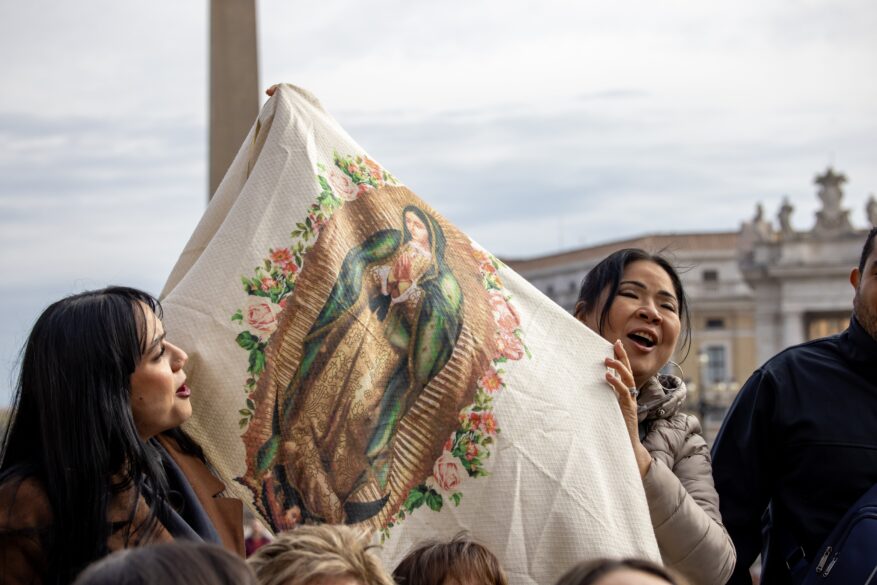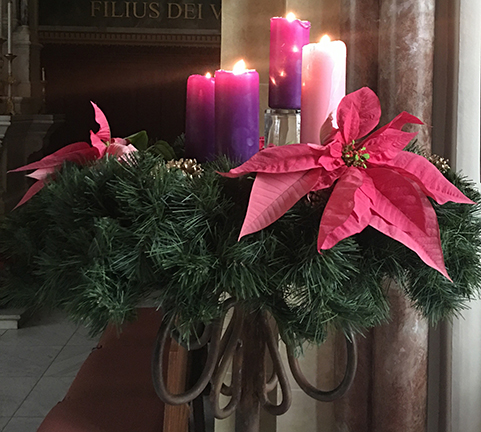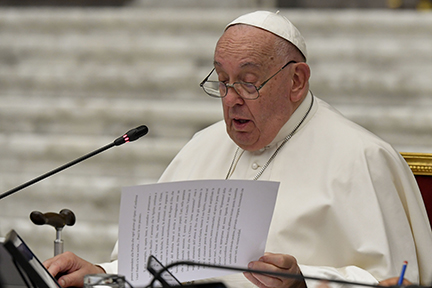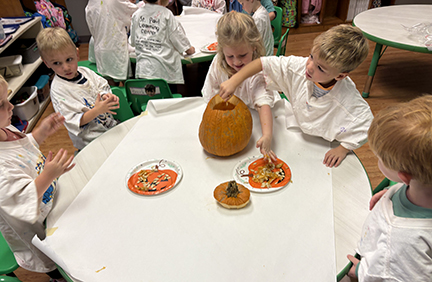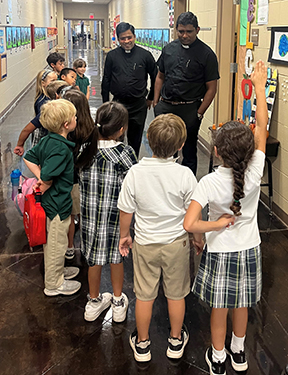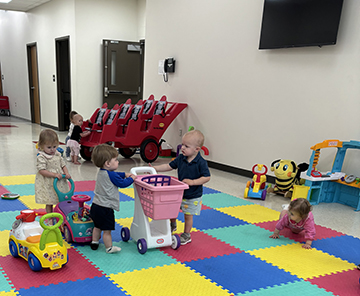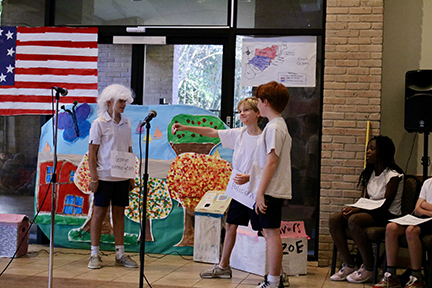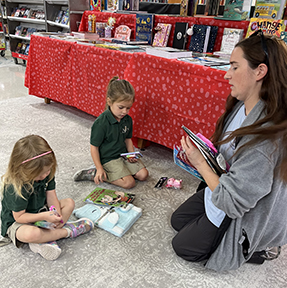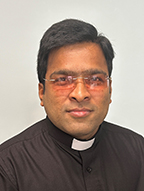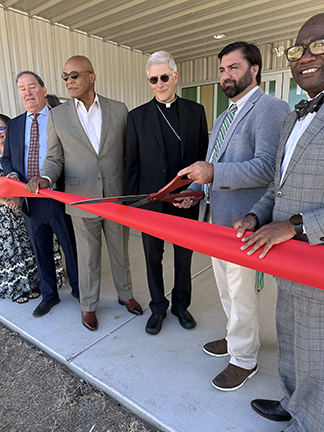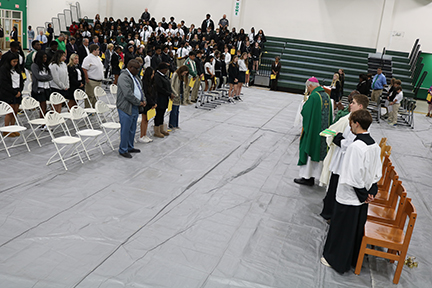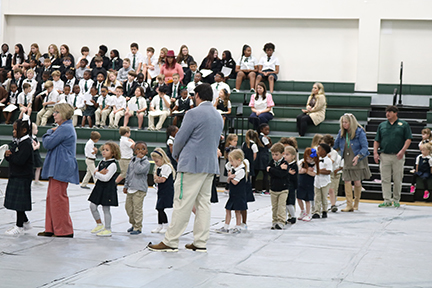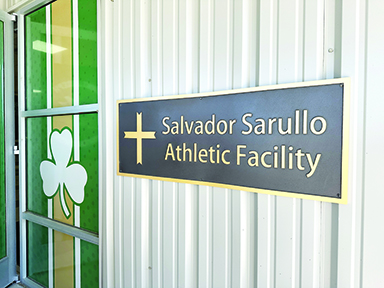Columna invitada
Por Obispo Robert Reed
Los que hemos experimentado la muerte de un ser querido, aunque creamos que se ha ido a un lugar mejor, seguimos luchando con la despedida. Es difícil dejarlo ir. A veces es un poco más fácil si hemos estado presentes en los últimos días de alguien, y en el momento de su muerte, cuando experimentamos todo el extraño (y a menudo hermoso) misterio de vivir y morir que se desarrolla ante nuestros ojos.
Aun así, la despedida es, como escribió Shakespeare, «una pena tan dulce».
En noviembre, la muerte nos parece única a los católicos. El mes comienza con la gran conmemoración de nuestros santos, seguida al día siguiente por la conmemoración de todos los que han dejado esta vida antes que nosotros.
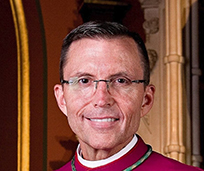
Y entonces las noches se alargan y llegan los vientos. El susurro familiar y cálido de las hojas disminuye y es sustituido por el chasquido de huesos secos de las ramas desnudas. Todo ello nos ayuda a recordar, y con agudeza, que «no tenemos ciudad permanente» (Heb 13,14). Al menos no una aquí, en la tierra.
Gracias a Dios, los cristianos sabemos que la muerte física no es el final de nuestras vidas, sino un portal hacia lo que San Pablo llama «la ciudad que está por venir».
Los Evangelios nos invitan a creer plenamente en la gloria y el poder de Dios; a entregarnos en todo; ¡a dar muerte a nuestras dudas y temores!
Pensemos en la emoción expresada en el capítulo 11 del Evangelio de Juan, cuando Lázaro, el amigo íntimo de Jesús, ha muerto. Sus hermanas están desoladas, y su dolor hace llorar al Señor. Jesús se adentra en la situación. Toca el aire que la rodea – una palabra a través de la Palabra – y la transforma. De la muerte a la vida. El Mesías ha revelado la gloria y el poder de Dios, para quien todo es posible.
La buena oración de este mes no se centra directamente en nosotros, sino en los que nos han precedido: nuestros antepasados de unidad genética y espiritual. Es una venerable tradición para nosotros, como personas de fe, recordar a quienes hemos tenido que dejar marchar: abuelos, padres, hermanos, parientes y amigos, y a quienes hemos llegado a conocer, amar y rezar con ellos, dentro de la gran «nube de testigos».
El tiempo puede suavizar nuestras penas, pero nuestros apegos permanecen, hasta que también nosotros debemos ser llorados y luego liberados.
Y sin embargo – ¡no lo olvidéis nunca! – los que hemos sido bautizados en la muerte de Cristo vivimos con una esperanza sustancial; una esperanza que no defrauda. Como enseña el libro de la Sabiduría, nuestra esperanza está «llena de inmortalidad» (Sab 3,4).
Esa esperanza nos ayuda a asombrarnos ante las profundidades del dolor, la pena y la confusión a las que puede llevarnos la muerte, hasta que empezamos a percibir el misterioso «resto de la historia». Que estamos parados y afligidos y creciendo y necesariamente continuando con nuestras vidas, mientras encontramos un lugar de transición, un pasaje sagrado – una puerta a través de la cual sabemos con certeza que nosotros también debemos pasar – hacia lo que Cristo Jesús nos demostró a través de su resurrección: la realidad de la vida eterna.
«Bautizados en su muerte… fuimos, pues, sepultados con él», predicó San Pablo a los romanos (Rom 6, 3-4), “para que, como Cristo resucitó de entre los muertos … también nosotros andemos en la novedad de la vida”.
Es un concepto refrescante, ¿verdad? «La novedad de la vida» nos anima a abrazar todas las estaciones de nuestro tiempo aquí y a abrir nuestras mentes, corazones y almas a Cristo en todo lo que nos llega, porque en todo ello -lo alegre y lo doloroso y lo incierto- se revela una especie de novedad de la vida.
Las cosas cambian; no terminan. ¿Y no es algo maravilloso de contemplar, mientras nos acercamos al final de otro año litúrgico, y miramos hacia la profunda expectación del Adviento?
(Robert P. Reed es obispo auxiliar de la archidiócesis de Boston, párroco de las parroquias de San Patricio y del Sagrado Corazón en Watertown, Massachusetts, y presidente de CatholicTV Network. Es presidente del Comité de Comunicaciones de la Conferencia Episcopal de Estados Unidos.)

